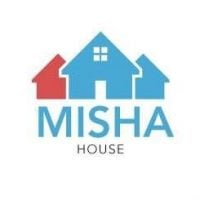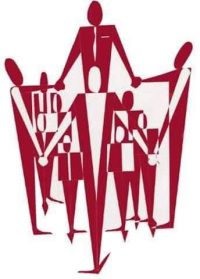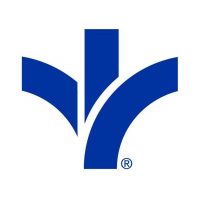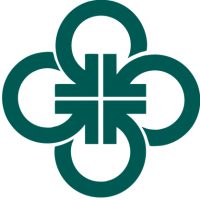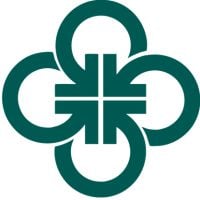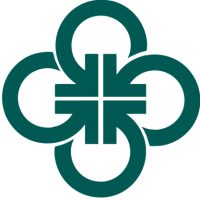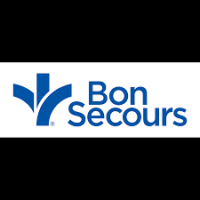MISHA House
Drug Rehab Center in Baltimore, Maryland
MISHA House is a CARF-accredited addiction treatment center that provides comprehensive services, such as aftercare support, drug rehab, intensive outpatient care, interventions, and outpatient levels of care, to individuals in Baltimore, MD who are struggling with opioid addiction, substance abuse, and drug addiction and accept private health insurance.
About This Maryland Facility
MISHA House is a reputable drug treatment center located in Baltimore, Maryland. It specializes in providing comprehensive services to individuals suffering from opioid addiction, substance abuse, and drug addiction. The facility is proudly accredited by CARF (Commission on Accreditation of Rehabilitation Facilities), ensuring high-quality care and treatment. MISHA House accepts private health insurance, making it accessible to a wide range of individuals seeking help. They offer various levels of care, including intensive outpatient programs, outpatient programs, and aftercare support, tailoring their services to meet the unique needs of each individual.
MISHA House offers a range of services to aid individuals in their journey towards recovery. Their drug rehab programs provide evidence-based treatment approaches, aiming to address not only the physical addiction but also the underlying factors contributing to substance abuse. Additionally, MISHA House provides intervention services, offering support and guidance to families and loved ones in encouraging their affected individuals to seek help. Their intensive outpatient programs offer structured treatment while allowing individuals to maintain their daily routines and responsibilities. MISHA House also provides comprehensive aftercare support to ensure individuals receive continued assistance and guidance even after completing their treatment program.
Genders
Ages
Modality
Additional
Accreditations

CARF
The Commission on Accreditation of Rehabilitation Facilities (CARF) is a non-profit organization that specifically accredits rehab organizations. Founded in 1966, CARF's, mission is to help service providers like rehab facilities maintain high standards of care.
Conditions and Issues Treated
Substance abuse typically leads to addiction, which requires specialized treatment programs at MISHA House to address. Many people benefit from inpatient drug rehabilitation, which includes inpatient acute care and residential rehabilitation. Other levels of care include intensive outpatient therapy, individual counseling, and support groups. Family therapy is also an essential part of treatment for substance abuse.
A combination of treatments is often needed to treat drug abuse issues effectively. In the case of drug abuse, there is no easy answer or one-size-fits-all cure.
Opioids are a series of medicines that are used for pain relief. Opioid addiction refers to the compulsive pursuit of opioids, even though they are not medically needed. Medication-assisted therapy at MISHA House in Baltimore, MD requires care in which both medications, medication, and behavioral treatments are used.
Levels of Care Offered at MISHA House
This center offers a variety of custom treatment tailored to individual recovery. Currently available are Aftercare Support, Drug Rehab, Intensive Outpatient, Intervention, Outpatient, with additional therapies available as listed below.
An Intensive Outpatient Program like what’s offered at MISHA House, targets those who need intensive treatment but would rather get it in the comfort of their homes. The treatment programs vary in duration and intensity. They can be tailored to suit the patient’s needs.
When remaining at their job in Baltimore, or continuing their studies, the individual may live with their family while utilizing MISHA House‘s outpatient services. Treatment requires counseling the patient at the individual level, in a group setting, about substance addiction, drugs, and therapy sessions.
An intervention is a meeting held by families and friends of the addicted party, managed by MISHA House. It lets the person know that their loved ones are concerned about them. It is intended to make the addicted party agree to get help.
Interventions are often hosted by a mental health professional in Maryland who knows how to communicate with people dealing with addiction. These intervention services can make all the difference when it comes to getting loved ones to agree to treatment.
Aftercare support involves the support given to a Baltimore, Maryland patient after they complete treatment. It helps them adjust to normal life. It may include setting them up in a halfway house and enrolling them in programs like Narcotics Anonymous (NA) and Alcoholics Anonymous (AA). MISHA House‘s patients may also be provided with career training to help them get back into the job force.
Therapies & Programs
Family therapy is a set of therapeutic approaches that assumes that the entire family is a system. It utilizes the strengths and resources of the family to help the patient refrain from resorting to substance abuse. The impact of substance abuse is not just on the patient but on the entire family. Family therapy ensures that the patient gets adequate support from the family members after the treatment making the recovery process sustainable
- Family therapy guides all the members of the family to help the patient.
- It helps to repair relationships and improve communication between family members.
- It helps to keep the patient engaged and motivated throughout the treatment.
Group therapy is an important tool in recovery. Finding a peer group in Baltimore, MD and others who relate to your situation is a fundamental tool for recovery at MISHA House. Addiction tends to lead to isolation and feelings of uniqueness. The accountability and friendship that is found in group therapy can be more effective than any single other treatment approach. This is generally introduced early in recovery and is recommended as a lifetime treatment habit.
Trauma therapy is a way of addressing trauma while in a safe situation in order to heal. This may involve MISHA House managing individual or group counseling or both. Other forms of therapy have been proven to assist in healing past traumas.
A type of cognitive-behavioral therapy is Dialectical Behavioral Therapy. It is intended for those who are vulnerable to self-harm and suicidal thoughts. MISHA House aims to help patients understand the connection between their feelings, emotions, and behaviors and provide them with the tools to make a difference in Baltimore, MD. For those whose addictions and habits originate from severe mental health problems, it is beneficial.
Negative feelings are common in substance abuse disorders. If not recognized, they can cause co-occurring disorders. CBT involves strategies that help to change the thinking and behavioral pattern. It can be administered as a monotherapy as well as a part of combination therapy.
Rational Emotive Behavioral Therapy (REBT) is a variation of Cognitive Behavioral Therapy (CBT) that helps people understand how maladaptive, negative, and habitual thoughts and feelings lead to bad life choices. REBT is based on the idea that people operate under many irrational but habitual patterns of thought that fuel harmful practices.
The first three steps depend on the patient, so they are more specific and situational. The succeeding four steps center on practical issues brought on by substance abuse. Steps 8 and 9 deal with the social and emotional repercussions of addiction, encouraging patients to make amends to people they have wronged. These are followed by two steps revolving around the further exploration and reinforcement of Steps 1 to 9.
The last step requires an individual to extend a helping hand to people who are still in the early stages of their recovery.
Payment Options Accepted
For specific insurance or payment methods please contact us.
Is your insurance accepted?
Ask an expert, call (888) 674-0062
Additional Details
Specifics, location, and helpful extra information.
Baltimore, Maryland 21216 Phone Number(410) 469-9425 Meta DetailsUpdated November 25, 2023
Staff Verified
Patient Reviews
There are no reviews yet. Be the first one to write one.
Baltimore, Maryland Addiction Information
For the past decade, Maryland's rate of drug use and abuse has significantly increased. The overdose rate is currently higher than the national average. This epidemic is due to the many industries where manual labor is required. As soon as prescription opioids were more readily accessible a large part of manual workers started using–and eventually abusing–the painkillers.
According to recent statistics, there are around 33,000 people who are addicted to drugs in Baltimore. Heroin-related overdose deaths are quite high in Baltimore, at 837 per 100,000 residents in 2016. Baltimore's most commonly abused drugs include heroin, cocaine, and marijuana. The people of Baltimore are friendly and welcoming, and there's always something going on. If you're looking for a place to start fresh, Baltimore is the perfect place.
Treatment in Nearby Cities
- Clinton, MD (39.8 mi.)
- Fallston, MD (19.8 mi.)
- Phoenix, MD (14.2 mi.)
- Silver Spring, MD (29.2 mi.)
- Halethorpe, MD (5.1 mi.)
Centers near MISHA House
The facility name, logo and brand are the property and registered trademarks of MISHA House, and are being used for identification and informational purposes only. Use of these names, logos and brands shall not imply endorsement. RehabNow.org is not affiliated with or sponsored by MISHA House.
